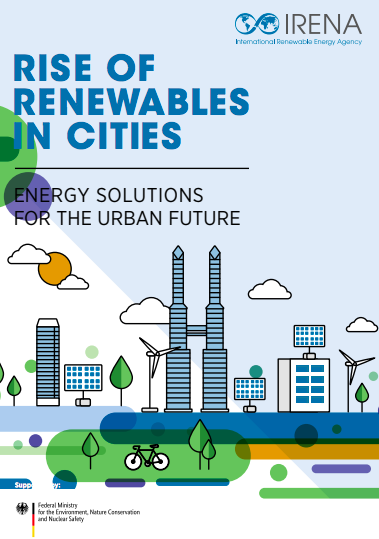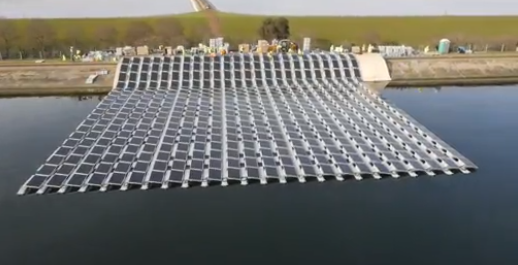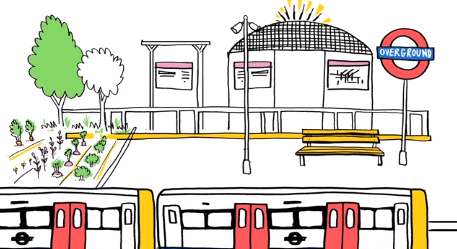Site search:
-
What’s new?
Energy for London Tags
Brent Buildings Camden Carbon Emissions CHP Cities Climate Adaptation Community Heating Community Initiatives Croydon Data DECC Decentralised Energy Distribution ECO Energy Costs Energy Efficiency Enfield FIT Fuel Poverty Funding Green Deal Hackney Haringey Housing Islington Lambeth Library Local Authorities Mayor Newham Ofgem Olympics Photovoltaics Planning RE:FIT RE:NEW Renewable Energy Retrofit Southwark Tower Hamlets Transport Waltham Forest Waste WestminsterEnergy Archives:
- February 2021 (1)
- January 2021 (15)
- December 2020 (15)
- November 2020 (9)
- October 2020 (3)
- August 2020 (5)
- July 2020 (3)
- June 2020 (4)
- April 2020 (10)
- March 2020 (5)
- February 2020 (2)
- January 2020 (3)
- October 2019 (1)
- September 2019 (4)
- August 2019 (2)
- July 2019 (1)
- August 2018 (1)
- November 2016 (8)
- October 2016 (8)
- September 2016 (2)
- August 2016 (8)
- July 2016 (14)
- April 2016 (12)
- March 2016 (16)
- February 2016 (8)
- January 2016 (4)
- December 2015 (1)
- November 2015 (1)
- October 2015 (16)
- September 2015 (3)
- June 2015 (1)
- May 2015 (1)
- April 2015 (1)
- March 2015 (1)
- February 2015 (1)
- January 2015 (1)
- December 2014 (18)
- November 2014 (4)
- August 2014 (8)
- July 2014 (7)
- June 2014 (25)
- May 2014 (8)
- April 2014 (4)
- March 2014 (12)
- February 2014 (7)
- January 2014 (13)
- December 2013 (11)
- November 2013 (15)
- October 2013 (15)
- September 2013 (18)
- August 2013 (5)
- July 2013 (20)
- June 2013 (33)
- May 2013 (8)
- April 2013 (16)
- March 2013 (25)
- February 2013 (14)
- January 2013 (20)
- December 2012 (23)
- November 2012 (23)
- October 2012 (25)
- September 2012 (14)
- July 2012 (12)
- June 2012 (43)
- May 2012 (20)
- April 2012 (8)
- March 2012 (40)
- February 2012 (39)
- January 2012 (40)
- December 2011 (22)
- November 2011 (40)
- October 2011 (33)
- September 2011 (48)
- August 2011 (40)
- July 2011 (58)
- June 2011 (41)
- May 2011 (80)
- April 2011 (38)
- March 2011 (33)
- February 2011 (25)
- January 2011 (24)
- December 2010 (3)
- November 2010 (7)
- October 2010 (6)
- September 2010 (7)
- August 2010 (1)
- July 2010 (2)
- June 2010 (4)
- May 2010 (1)
- March 2010 (3)
- February 2010 (3)
- December 2009 (5)
- November 2009 (2)
- October 2009 (3)
- July 2009 (3)
- June 2009 (1)
- April 2009 (1)
- March 2009 (1)
- February 2009 (1)
- January 2009 (1)
- December 2008 (2)
- October 2008 (1)
- September 2008 (1)
- July 2008 (1)
- March 2008 (2)
- January 2008 (2)
- October 2007 (1)
- September 2007 (3)
- July 2007 (1)
- March 2007 (1)
- February 2007 (3)
- November 2006 (3)
- August 2006 (1)
- February 2006 (1)
- May 2005 (1)
- February 2004 (1)
Tag Archives: Renewable Energy
BEIS green light for biggest battery in the UK
30 November 2020: Outside of London, but relevant to managing the supply of offshore wind electricity supplies into the city. “Scottish company InterGen has been granted consent by the UK Department for Business, Energy and Industrial Strategy (BEIS) to build the country’s largest battery energy storage facility on the banks of the Thames River in Essex, England. The 320MW/640 megawatt-hour DP World London Gateway project could ultimately deliver 1.3GWh of power, the company said. It added that, when fully charged, the battery could power up to 300,000 homes for two hours. However, it will mostly be used to support and stabilise existing electricity supplies. Construction is likely to start in 2022, with the battery plant becoming operational in 2024.” Read the full story on Renews here.
Posted in News
Tagged Renewable Energy, storage, Wind
Comments Off on BEIS green light for biggest battery in the UK
Rise of Renewable Energy in Cities

October 2020: Report from the International Renewable Energy Agency (IRENA) highlights resource potential, targets, technology options and system-planning priorities for cities around the world. City-level targets – properly attuned to local resources and needs – are an essential component of the transition to renewables.
Helpful overview on range of energy solutions most appropriate for urban areas and highlights the increasing number of cities around the world who have set targets to increase the amount of renewable energy they are using. Chapter 4 a useful run through various modelling tools, the report stating a “comprehensive study was undertaken to evaluate these models and tools, identify prevailing gaps and challenges in the field, and propose recommendations to improve the tools/ methods and their uptake by urban energy planners.” Download the report here.
Posted in Library, News
Tagged Cities, Renewable Energy
Comments Off on Rise of Renewable Energy in Cities
100% of Hackney Council electricity now supplied by renewables
2 April 2020: Following on from plans set out in July 2019, and a climate emergency declaration made in June 2019, Hackney have now announced the council will be sourcing all of its electricity supplies from renewable generation. Hackney’s press release sets out that its annual £6.5m electricity bill will now go to “electricity sourced from wind and solar power”.
The Council’s strategy is to shift its energy supplies to fully renewable sources, initially via green tariffs linked to Renewable Energy Guarantees of Origin (REGO) – which today’s announcement relates to – with an ambition to move to supporting the development of new/additional renewable energy supplies by the council entering into longer term Power Purchase Agreements (PPAs) (ie rather than sourcing green electricity from the power market, directly investing in new renewable generation through a long-term contract).
A July 2019 article by the Hackney Gazette sets out that: “Cllr Jon Burke (Lab, Woodberry Down), cabinet member for energy, laid out further ambitions to decarbonise the council’s gas demand on top of its electricity. He is also aiming to secure a contract to purchase renewable energy directly, going beyond the current arrangement which sees Hackney’s energy come with certification guaranteeing it as renewable.
“Cllr Burke said: “Renewable Energy Guarantee of Origin certificates (REGOs) are a major step forward for the council in delivering our 2018 manifesto commitment to transform the way we purchase wholesale energy to increase the generation of renewable energy beyond Hackney’s borders by using our corporate spending on gas and electricity to increase investment in sources of clean energy. However, we want to go a step further by securing a Power Purchase Agreement (PPA) with a specific generation facility.”
A Hackney Council procurement meeting in September 2019 included a paper which provides some further details on the contract:
- As part of the Mayor and Council’s commitment to rapidly decarbonising the full functions of the local authority, the Council switched to a minimum of 50% renewable electricity on 1 April 2019. This next step will see the Council secure 100% renewable electricity through the purchase of Renewable Energy Guarantee of Origin Certificates (REGO).
- The natural next step in the process beyond 1 April 2020 will be to explore the potential for a Power Purchase Agreement (PPA) with a specific generation facility. …Securing such an agreement…would demonstrate in a very visible way to the residents of Hackney that our corporate spending on renewables is contributing to the delivery of new sources of clean energy, rather than merely sending a signal to the market that more renewable energy is required, which is the role that the purchase of REGO certificates performs.
Suppliers awarded have not been announced – but an October 2019 procurement paper sets out the sums awarded (point 7).
‘London disposal authority calls for food waste ban’
5 October 2016: Let’s Recycle report on North London Waste Authority’s submission to the EFRA Select Committee inquiry into Food Waste in England with the NLWA stating that a: “ ban on commercial and industrial food waste to landfill would have the benefit of diverting industrial food wastes from disposal, including the quantity of food waste from small restaurants and shops, thus making food waste collections potentially more viable for these premises and potentially further stimulating the market for anaerobic digestion.”
The response goes on:
“However, it may have the unintended consequence of encouraging retailers to sell more short-life food to householders to avoid sending the food to relatively expensive AD and composting outlets; which would have to be guarded against.”
The NLWA response echoes recommendations made by the London Assembly Environment Committee in their Bag it or bin it?: Managing London’s domestic food waste.
Posted in News, Renewable Energy
Tagged Anaerobic Digestion, Renewable Energy, Waste
Leave a comment
How London’s giant floating solar farm was put together
23 March 2016: A new BBC London TV news story providing some added background to Europe’s biggest floating solar farm which is being built in south west London.
The project:
- Took three months to build
- Is installed at the Queen Elizabeth Reservoir at Walton on Thames, just outside of Kingston, and is the size of eight football pitches
- Consists of 23,000 solar panels attached to floats allowing the panels to sit on the water
- Will contribute to Thames Water target to generate 33% of its energy demand from renewable energy by 2020
- Has had to be installed quickly to meet the 31 March 2016 deadline for large solar projects under the Government’s Renewable Obligation policy.
Posted in Decentralised Energy, News, Renewable Energy
Tagged Decentralised Energy, Kingston, Photovoltaics, Renewable Energy
Leave a comment
London’s floating solar array – video
17 March 2016: There has rightly been a lot of press around an innovative floating PV array which is currently being constructed in the west of London near Heathrow. The project has been covered in The Guardian, BBC, and a helpful video visiting the site has just recently been posted online by EnergyLiveNews.
Details of the solar array follow below:
- The project is being funded and developed by Lightsource and Ennoviga for Thames Water (see their press release here) at their Queen Elizabeth II reservoir, near Walton-on-Thames, in Surrey.
- The array will consist of 23,000 solar panels with a total generating capacity of 6.3MW
- The electricity will be used to part power Thames Water’s nearby water treatment works
- It’s not the first floating solar farm in the UK – that’s a United Utilities project in Manchester – but it is the biggest such scheme in Europe.
- Treehugger usefully mentions that “…the water keeps the solar panels cool, which helps the solar panels to perform better and last longer and the water itself benefits from the panels being there. In the case of reservoirs, the panels block out sunlight so it keeps algae growth to a minimum and reduces water evaporation to keep the reservoirs full.”
This project goes to highlight the hugely flexible nature of solar and the huge potential for PV that could exist across the capital across many sites when properly supported.
Mayor pulls no punches in FIT consultation response
23 October 2015: The Mayor has posted his submission to DECC’s Feed in Tariff (FIT) consultation online today (the deadline for the response) alongside a letter to Energy Minister Andrea Leadsom, from Deputy Mayor for Energy & the Environment, Matthew Pencharz.
The letter pulls no punches, stating “Unfortunately, the proposals that have been consulted on, with little or no prior warning, to come into force, in the new year has created great uncertainty in the solar PV industry, potentially putting at threat thousands of jobs across the UK. The Mayor is concerned about the potential impact on the 3,100 jobs, mainly in SMEs, which make up the solar PV industry in London.”
“The Mayor’s view is that in order to ensure an orderly transition to subsidy-free solar PV industry, there should be a gradual tapering of the FIT over a two-three year period.”
The Mayor has voiced his concerns over DECC’s proposals for some months now (see previous statement here) and his sentiments for a ‘gradual tapering’ echo calls from industry organisations, such as the Solar Trade Association, who have strongly campaigned against the proposed ‘cliff edge’ withdrawal of support for solar, setting out their own recommendations in a ‘£1 plan‘ to 2019.
The Mayor’s response to the FIT consultation goes on to raise a number of highly relevant issues for London, including:
- the proposed cuts to the FIT could significantly hamper solar PV deployment rates in London, which already face major rollout challenges, including negatively impacting upon the delivery of Mayor’s retrofit programmes, RE:NEW and RE:FIT
- the proposed tightening of the energy efficiency criteria would prevent a large number of properties in London from installing solar PV without significant investment in energy efficiency improvements, for which there is no longer support available following the termination of the Green Deal
- whilst a move towards smart metering with net metering functionality is welcome, making it a requirement for receipt of the export tariff would require a commitment or obligation on the energy suppliers to install a smart meter in a timely manner, as well as ensuring that the property was currently suitable for installation of a smart meter – an issue which arises frequently in London.
The Mayor’s response also raise concerns about the impact of the proposals on community energy projects in London. All in all, this is a significant intervention by the Mayor in what has become a highly politicised consultation.
At a recent DECC FIT workshop, officials have said they are looking to respond to the consultation by late November/early December (this is needed as the consultation proposes to introduce changes to the FIT programme as early as January 2016!). With the number of responses predicted to be in the thousands (the shorter-run FIT pre-accreditation consultation had over 2,000 responses), and with the threat of major job cuts in the department, it looks like it’s going to be a busy few weeks over at 3 Whitehall Place…
Posted in News, Renewable Energy
Tagged DECC, Housing, Photovoltaics, RE:FIT, RE:NEW, Renewable Energy
Leave a comment
A field study of urban microclimates in London
December 2014: Open access paper published in the January 2015 issue of Renewable Energy.
“This paper aims to address the characteristics of urban microclimates that affect the building energy performance and implementation of the renewable energy technologies. An experimental campaign was designed to investigate the microclimate parameters including air and surface temperature, direct and diffuse solar irradiation levels on both horizontal and vertical surfaces, wind speed and direction in a dense urban area in London. The outcomes of this research reveal that the climatic parameters are significantly influenced by the attributes of urban textures, which highlight the need for both providing the microclimatic information and using them in buildings design stages. This research provides a valuable set of microclimatic information for a dense urban area in London. According to the outcomes of this research, the feasibility study for implementation of renewable energy technologies and the thermal/energy performance assessment of buildings need to be conducted using the microclimatic information rather than the meteorological weather data mostly collected from non-urban environments.”
Available to download here.
Energy & Climate Questions to the Mayor
December 2014: This month the Mayor has been asked questions in relation to:
alternative energy for maritime facilities; the Mayor’s Energy Advisor’s letter to the Treasury to support tax incentives to help community energy projects; the Belvedere Energy from Waste plant and the Viridor Energy Recovery plant in Beddington, Sutton; the Mayor’s Energy Advisor’s visit to Shanghai and Beijing; the Mayor’s support for minimum energy efficiency standards in the private rented sector; Crossrail stations using decentralised energy; whether the Mayor supports the call for energy efficiency to be made a UK infrastructure priority; research commissioned by the GLA Environment Team this year costing more than £10,000; Islington Council’s recent success at the Energy Institute Awards; TfL officers responsible for examining the potential for solar energy; and again for the Metropolitan Police Service; TfL’s total electricity spend – and the the proportion of electricity it plans to source for low carbon generators in London; whether TfL has undertaken an assessment of solar PV potential across its estate; meetings the Mayor has had with the London Sustainable Development Commission; the amount of solar PV installed across the Met Police’s estate; and also TfL’s estate; a programme for deploying solar across the Met Police’s estate; the Mayor’s support for Cold Homes Week 2015; Excess Winter Mortality (EWM) statistics for London; the number of children in London living in fuel poverty; the number of Londoners living in fuel poverty; if the Mayor had worked with Public Health England on fuel poverty issues; how the Mayor will be helping London households in fuel poverty this winter; Mayoral support for anaerobic digestion facilities in London; the Mayor’s support to older Londoners in fuel poverty; decentralised energy support unit (DEPDU) work on the North London Heat and Power project; the number of RE:NEW households visited with children; RE:NEW programme progress reports; companies on the RE:NEW programme procurement framework and discussions with Brent Council on fracking.
Previous months questions to the Mayor can be found here.
Posted in Decentralised Energy, Energy Efficiency, News, Renewable Energy
Tagged Brent, Buildings, Fuel Poverty, Housing, Islington, Photovoltaics, Renewable Energy, Sutton, Transport, Waste
Leave a comment
Contribution of wood burning to PM10 in London
14 December 2014: Sunday Times article covering how ‘Wood-fired stoves fuel city pollution‘. The author points to evidence supporting the article’s findings in an academic paper (fully available) published earlier this year in the journal ‘Atmospheric Environment‘ ‘Contribution of wood burning to PM10 in London‘:
“Air pollution from domestic wood burning has long been recognised as an important contributor to poor ambient air quality in Scandinavian and alpine regions of Europe where wood burning is routinely used for residential space heating. However, recent evidence is suggesting that biomass burning might be more widespread…The current study sought to determine the existing contribution of wood burning to PM10 in London so that the impacts of increased biomass burning can be quantified in the future.“
£10m Urban Community Energy Fund launched
January 27 2014: The Government’s new Community Energy Strategy is being launched today and press reports have highlighted that it will include a new £10m Urban Community Energy Fund (UCEF). This mirrors the existing Rural Community Energy Fund, and is clearly welcome news for London-based community-led energy projects.
This fund will be open to non-rural communities and will provide up to approximately £150,000 of funding for feasibility and pre-planning development work to help projects become investment ready. The funding will be available in two stages:
- Stage one will be a grant of up to approximately £20,000 for feasibility of renewable energy projects.
- Stage two will be a loan of up to approximately £130,000 to support pre-planning development work, planning applications and to develop robust business cases to attract further development.
No details as yet to when the Fund will be launched or how long it will operate for. Hopefully this will all become apparent later today…
Posted in Decentralised Energy, News
Tagged DECC, Decentralised Energy, Funding, Renewable Energy
Leave a comment
London Overground Energy Gardens Network
January 2014: Recently appointed as one of the Mayor’s ‘London Leaders’, hear about Agamemnon Otero’s fascinating project to create an “EnergyGarden Network at stations on the Overground Rail lines with solar panels and vegetable gardens will address food and energy inequality in communities“.
Agamemnon is also CEO of Repowering London.




